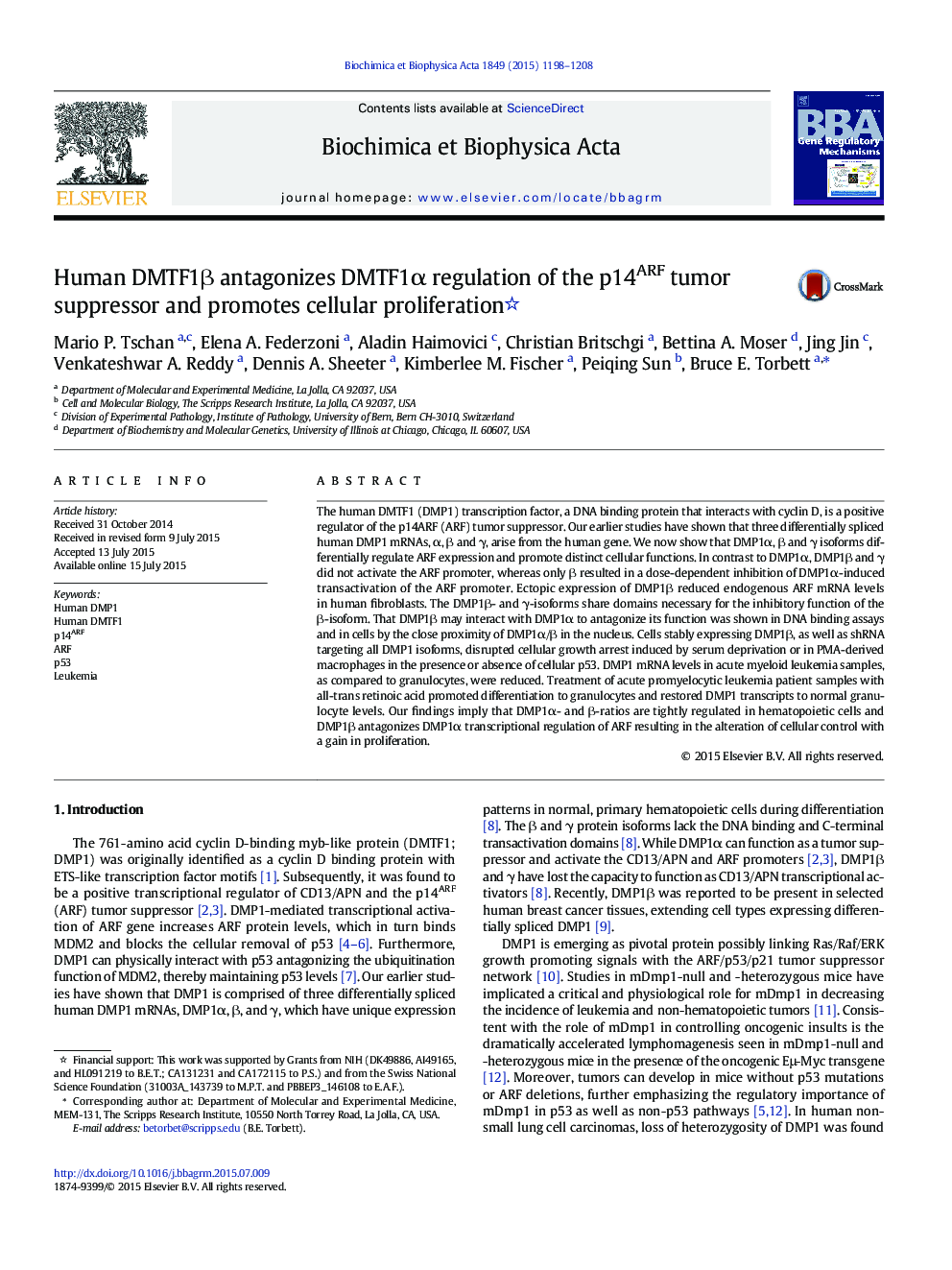| Article ID | Journal | Published Year | Pages | File Type |
|---|---|---|---|---|
| 10799005 | Biochimica et Biophysica Acta (BBA) - Gene Regulatory Mechanisms | 2015 | 11 Pages |
Abstract
The human DMTF1 (DMP1) transcription factor, a DNA binding protein that interacts with cyclin D, is a positive regulator of the p14ARF (ARF) tumor suppressor. Our earlier studies have shown that three differentially spliced human DMP1 mRNAs, α, β and γ, arise from the human gene. We now show that DMP1α, β and γ isoforms differentially regulate ARF expression and promote distinct cellular functions. In contrast to DMP1α, DMP1β and γ did not activate the ARF promoter, whereas only β resulted in a dose-dependent inhibition of DMP1α-induced transactivation of the ARF promoter. Ectopic expression of DMP1β reduced endogenous ARF mRNA levels in human fibroblasts. The DMP1β- and γ-isoforms share domains necessary for the inhibitory function of the β-isoform. That DMP1β may interact with DMP1α to antagonize its function was shown in DNA binding assays and in cells by the close proximity of DMP1α/β in the nucleus. Cells stably expressing DMP1β, as well as shRNA targeting all DMP1 isoforms, disrupted cellular growth arrest induced by serum deprivation or in PMA-derived macrophages in the presence or absence of cellular p53. DMP1 mRNA levels in acute myeloid leukemia samples, as compared to granulocytes, were reduced. Treatment of acute promyelocytic leukemia patient samples with all-trans retinoic acid promoted differentiation to granulocytes and restored DMP1 transcripts to normal granulocyte levels. Our findings imply that DMP1α- and β-ratios are tightly regulated in hematopoietic cells and DMP1β antagonizes DMP1α transcriptional regulation of ARF resulting in the alteration of cellular control with a gain in proliferation.
Related Topics
Life Sciences
Biochemistry, Genetics and Molecular Biology
Biochemistry
Authors
Mario P. Tschan, Elena A. Federzoni, Aladin Haimovici, Christian Britschgi, Bettina A. Moser, Jing Jin, Venkateshwar A. Reddy, Dennis A. Sheeter, Kimberlee M. Fischer, Peiqing Sun, Bruce E. Torbett,
